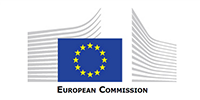
An investment of over €368 million from the European Regional Development Fund was approved by the European Commission to support the construction of the line 3 of the Sofia metro. The project "Extension of the Sofia metro, Line 3, phase I, Boulevard Valdimir Vazov-Centre-Zhitnitsa Street" aims to build almost 8 km of new line and eight new stations.
Commissioner for Regional Policy Corina Creţu said: "Environment-friendly public transport systems improve the attractiveness of a city for businesses and tourism, boost the competitiveness of the local economy and increase the quality of everyday life. This shows the tangible and positive impact of ESI Funds investments in Bulgaria."
The objective of this project is to link the residential districts of Suhata reka, Hadzhi Dimitar, Krasno selo, Slaviya, Belite brezi, Lagera, Hipodruma with the centre of Sofia. The line 3 will also enable to reach the residential districts of Lyulin, Mladost, Obelya, Nadezhda, Lozentets, Druzhba, via its connections with lines 1 and 2. The investment also covers the supply of the necessary rolling stock (20 metro trains).
Background:
This is a "major project" where the total investment is above €50 million and thus subject to a specific decision by the European Commission whereas other types of projects are approved at national or regional levels.
More information:
Open Data Portal for the ESI Funds 2014-2020
About European Commision
Transport directly affects everyone in Europe. Whatever age we are, and whatever activities we undertake, transport and mobility play a fundamental role in today’s world. The aim of the Commission is to promote a mobility that is efficient, safe, secure and environmentally friendly and to create the conditions for a competitive industry generating growth and jobs. The issues and challenges connected to this require action at European or even international level; no national government can address them successfully alone. The European Commission’s Directorate-General for Mobility and Transport works in concert with the European Union Member States, European industry, citizens and stakeholders.




Comments
There are no comments yet for this item
Join the discussion